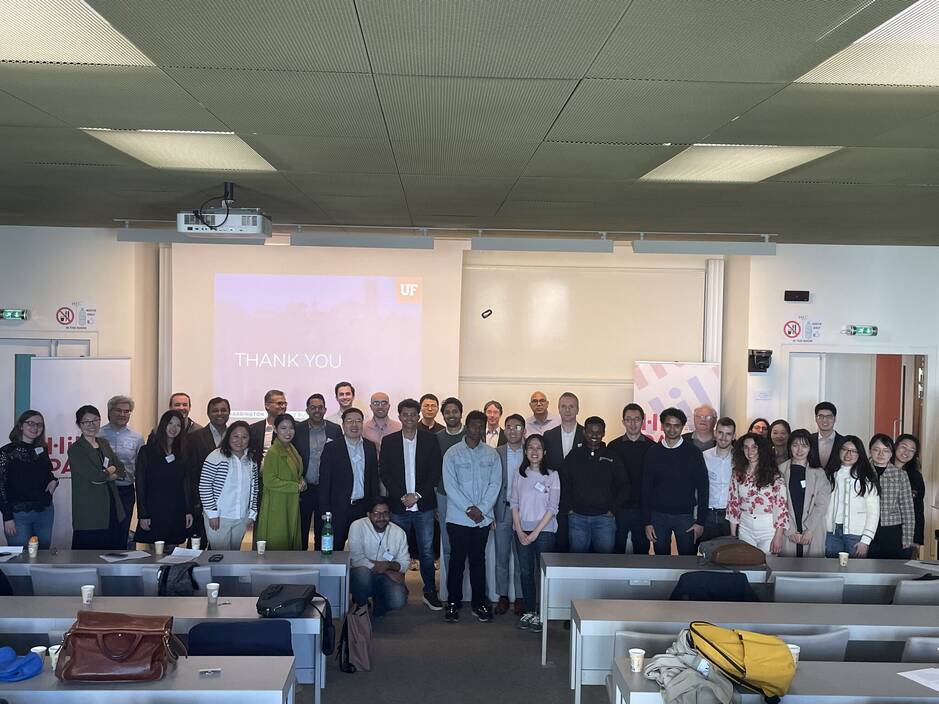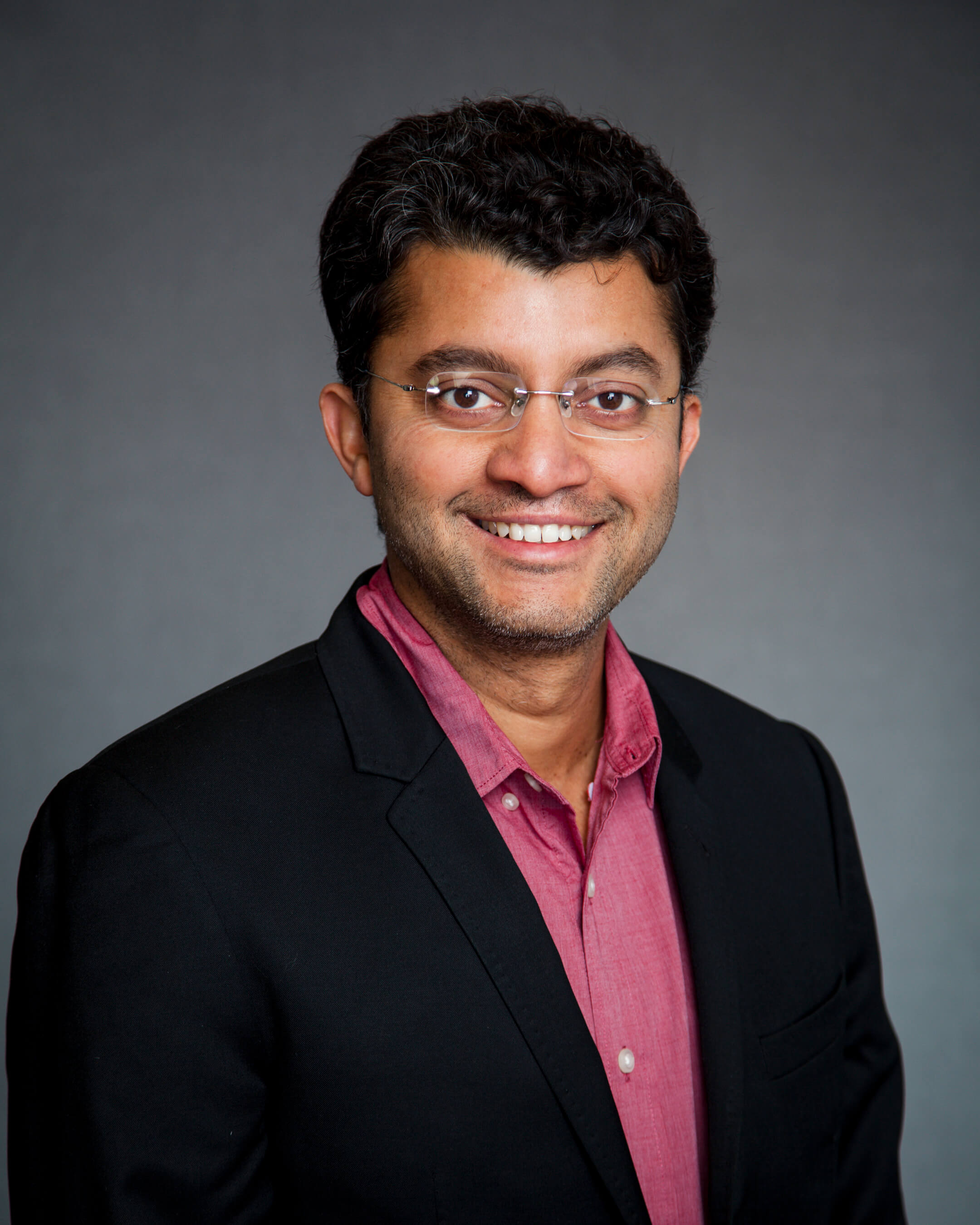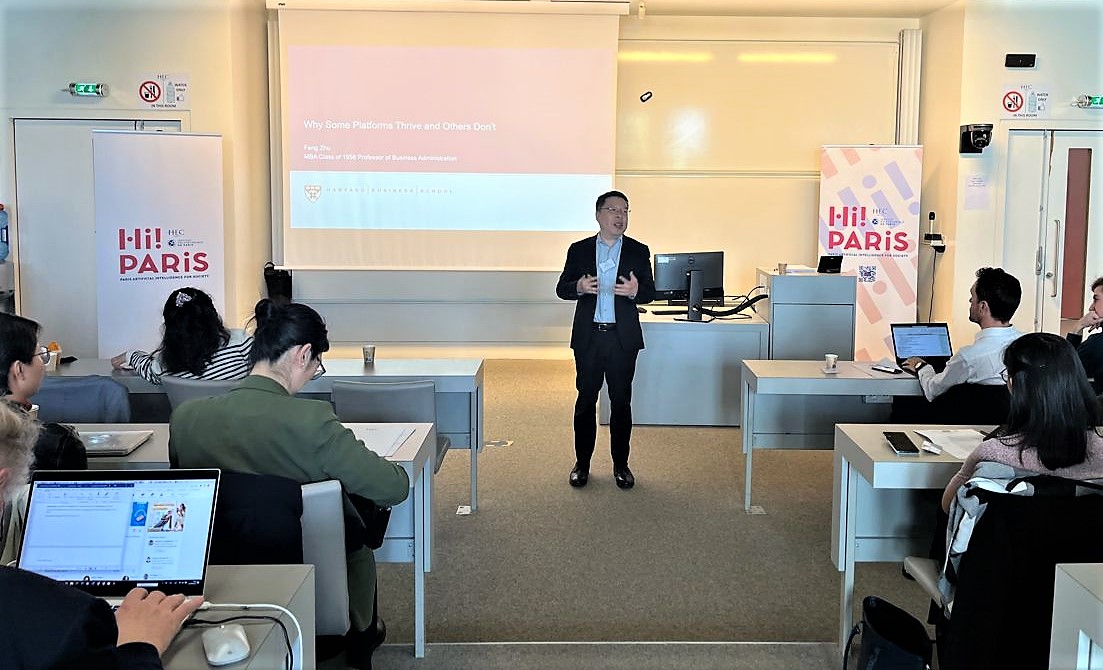How can data analytics and AI benefit society and business?
To answer this central question, Hi! PARIS research fellow Xitong Li invited five leading AI scholars and two representatives from French companies to take part in a full day workshop on AI and the digital economy. This event attracted participants from as far afield as Spain, Italy, the USA and Germany.

“The feedback from both the speakers and audience has been overwhelmingly positive!” Professor Xitong Li could hardly have wished for a better outcome after organizing the inaugural workshop on AI and the Digital Economy on April 21. The Hi! PARIS Fellow worked diligently alongside fellow-organizer Cathy Yang to bring together researchers and practitioners in a dialogue Li insists can be mutually beneficial.
A conviction shared by several of the participants. “I love these kind of meetings where both sides bring fresh perspectives and feed off each other’s knowledge,” enthused Anindya Ghose. He’s the director of the Masters of Business Analytics Program at NYU Stern, a pioneering data science degree which is celebrating its 10th anniversary this year. “The workshop very much reflects our approach, since I’ve molded the program curriculum to make it more real world, less pedagogical, more practical.”
As an avid high-altitude mountaineer, Ghose relishes the challenge of reaching new summits with the Hi! PARIS Center. It was one of the reasons he accepted the invitation in 2019 to be on its Advisory Board: “There are a lot of overlaps between what’s happening here and at Stern’s. Similarities, but also differences. In the field of AI, for example, the Americans are mostly interested in the immediate applications of AI in business and the corporate world. Whereas at HEC, it goes beyond business, it’s broader, and aims at actually making a difference. So, the professors and Doctoral Fellows in Europe explore AI aspects like mathematical optimization and skill sets that at NYU we tend to ignore, because they have to be relevant to companies from Day One.” For this prolific writer, the Center has evolved at lightning speed: “The future for Hi! PARIS is very, very bright because they are hiring some of the best minds in Europe. In the space of four years, they have really expanded the portfolio skills in their faculty line-up.”
Building Bridges for AI
Professor Feng Zhu believes the April 21workshop is part of a vital process to develop an exchange between academics and representatives of the businesses present, such as Louis Dreyfus and Veesual. “The workshop was very timely and important,” the Harvard Business School professor underlined. “It’s important to have these forums to translate our research into accessible and concrete language and study the implications for society. At the moment, countries like China, Japan, the US, Australia and blocs like the EU, are implementing major tech regulations. And our academic research can help explain why some of these regulations need a solid academic basis, with empirical evaluations. So, this workshop is very helpful in harmonizing our joint efforts.”
The daylong event began with Professor Ghose’s keynote presentation on how to build an AI-based organization through a data-driven framework founded on four pillars. This was followed by Professor Prasanna ‘Sonny’ Tambe’s paper on deep capital and learning, before Alex Rykhva (who heads the Data Science and Analytics team at the Louis Dreyfus company) shared his vision of data science in commodity trading. The afternoon was devoted to four other presentations. Professor Feng Zhu gave the afternoon keynote presentation explaining why some platforms succeed and others don’t. He was followed by the CEO of Veesual, Maxime Patte, who provided insights into the application of generative AI in the fashion industry his company is involved in. This was a practical presentation which mapped out what Patte described as a “journey from an impressive technology to a sticky product.” CMU Professor Ananya Sen then described the value of external data for digital platforms. Finally, Professor Anuj Kumar of the University of Florida shared his take on educational tech platforms.
Zoom on Professors Ghose and Zhu
Anindya Ghose’s research has been irrigated by his two decades of consultancy work with companies like Apple, South Korean Telecom and Germany’s Telefonica. “There were many layers to adopting AI once they achieved their digital transformation journeys,” he confides whilst at the conference.

Ghose has boiled them down to four foundational pillars: descriptive analytics, predictive analytics, causal analytics, and the prescriptive phase. “Descriptive is a form of exploratory analytics where companies analyze their data to figure out how they can best use it. In phase two, you have to answer the question: ‘What will happen next?’ Then, we have the causal phase which figures out why it happened. And we finally reach the descriptors phase which is our recommendations of where the companies should go next.”
Ghose’s work with over 45 companies in five continents leads him to consider what are the data privacy trade-offs these companies face in the AI era when dealing with consumers. It also has nourished his data science program at NYU since it began a decade ago.
“We have three or four courses for each pillar, a total of 17 courses in the program curriculum. They reflect the strong evolution we’ve seen in the past 20 years. Indeed, at the beginning, there was a healthy skepticism among companies about the need for all this data-driven decision making.” Fortunately for Ghose, a couple organizations started adopting this approach: “And then it became a cascading effect story. Word spread very fast and soon everyone began adopting AI. In recent years, it’s been exponential: everyone, irrespective of size, has been embracing AI and thriving with it.”
NYU Professor Anindya Ghose
Feng Zhu’s research goes one step further. The co-author of “Why Some Platforms Thrives… and Others Don’t” delves into the five characteristics that have helped the likes of Uber, Tencent and Alibaba flourish. “I was curious to understand what was behind their successes,” he explains during a workshop break. “In the course of my research, I found that a network’s structure influences the ability of a platform to sustain its scale. When it becomes fragmented into local clusters it is exposed to challenges.”
HBS Professor Feng Zhu
Zhu found five network properties that make a difference on the scalability, sustainability and profitability of digital platforms. He says it all boils down to five things: the ability of platforms to manage network effects, vulnerability to multi-homing, bridging to multiple networks, risk of disintermediation and clustering. These are outlined in his 2019 article published by the Harvard Business Review. “I’m happy to say the research has been very helpful to understanding investment opportunities, guiding regulators and investors to understand the competitive dynamics across different markets.” Zhu cites the case of the former head of the Antitrust Division in the US Department of Justice. “When he read my article, he found it would be extremely relevant for his work. He immediately photocopied it and sent it to everyone in the division. So, regulators do find it useful, too.”
Scaling Up Future Workshop
Workshop co-organizer Xitong Li said he was delighted by the quality of this new initiative. The HEC academic, who has been newly promoted to full professorship recently, said the feedback from both speakers and audience was “overwhelmingly positive”. “They particularly enjoyed the format of mixing speakers and audience from both academia and industry,” he said. “We’re encouraged by this success and will work on scaling up its quality.”
The event is in line with Hi! PARIS’ key objective of finding practical applications for AI and researching its impact. This has been underlined repeatedly by the Center’s Scientific co-director, Nicolas Vieille. “We have about 150 researchers dedicated to research on AI,” he recently said. “Many have been involved in the 17 projects we’ve developed so far, including one that is being used by Brigade des Sapeurs Pompiers firefighters here in Paris to improve their services.” Such a hands-on approach to AI bodes well for future workshops Professor Li is aiming to organize. In the meantime, Xitong LI is inviting companies that are interested in any form of collaboration to approach him. Learn more about Xitong Li's research on AI and Information Systems on Knowledge@HEC.
